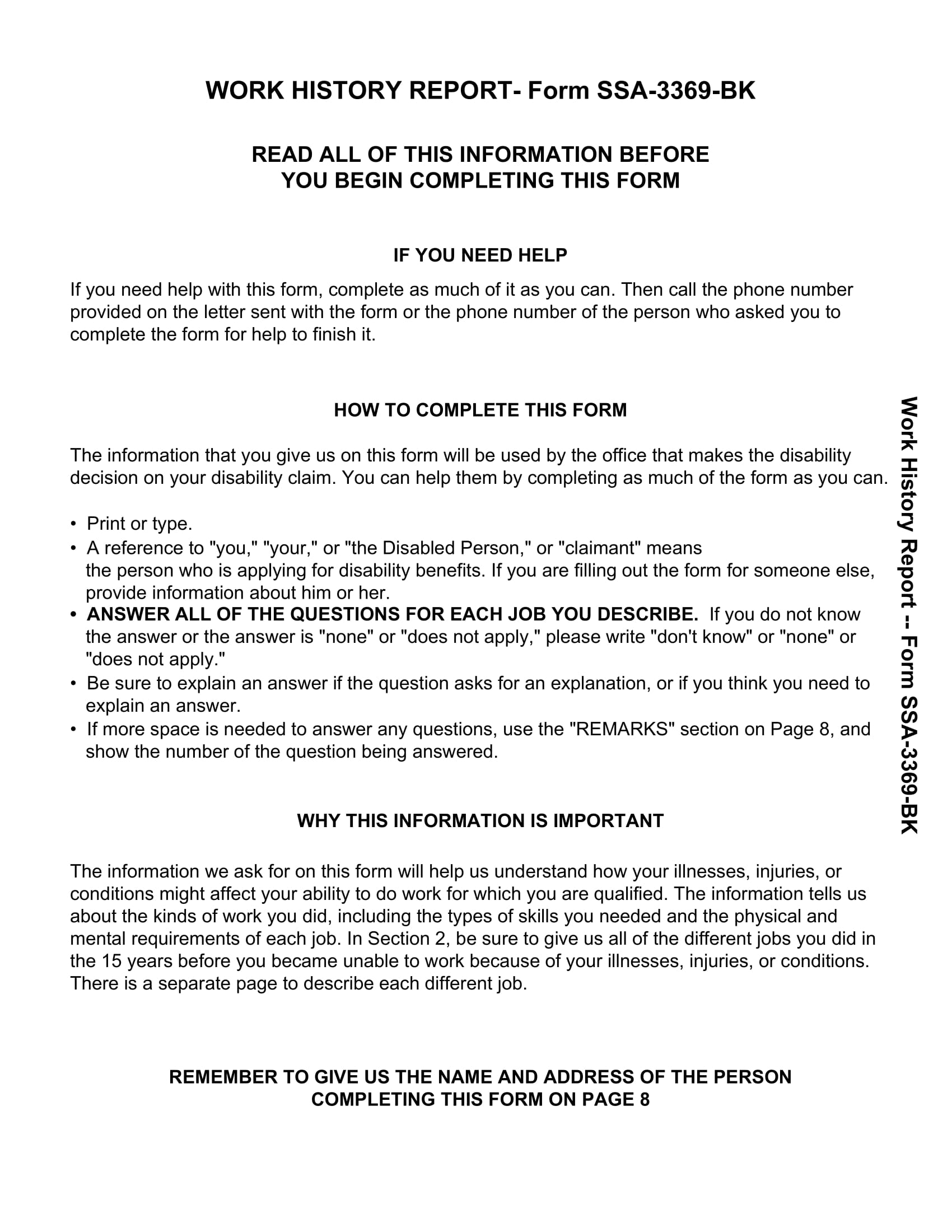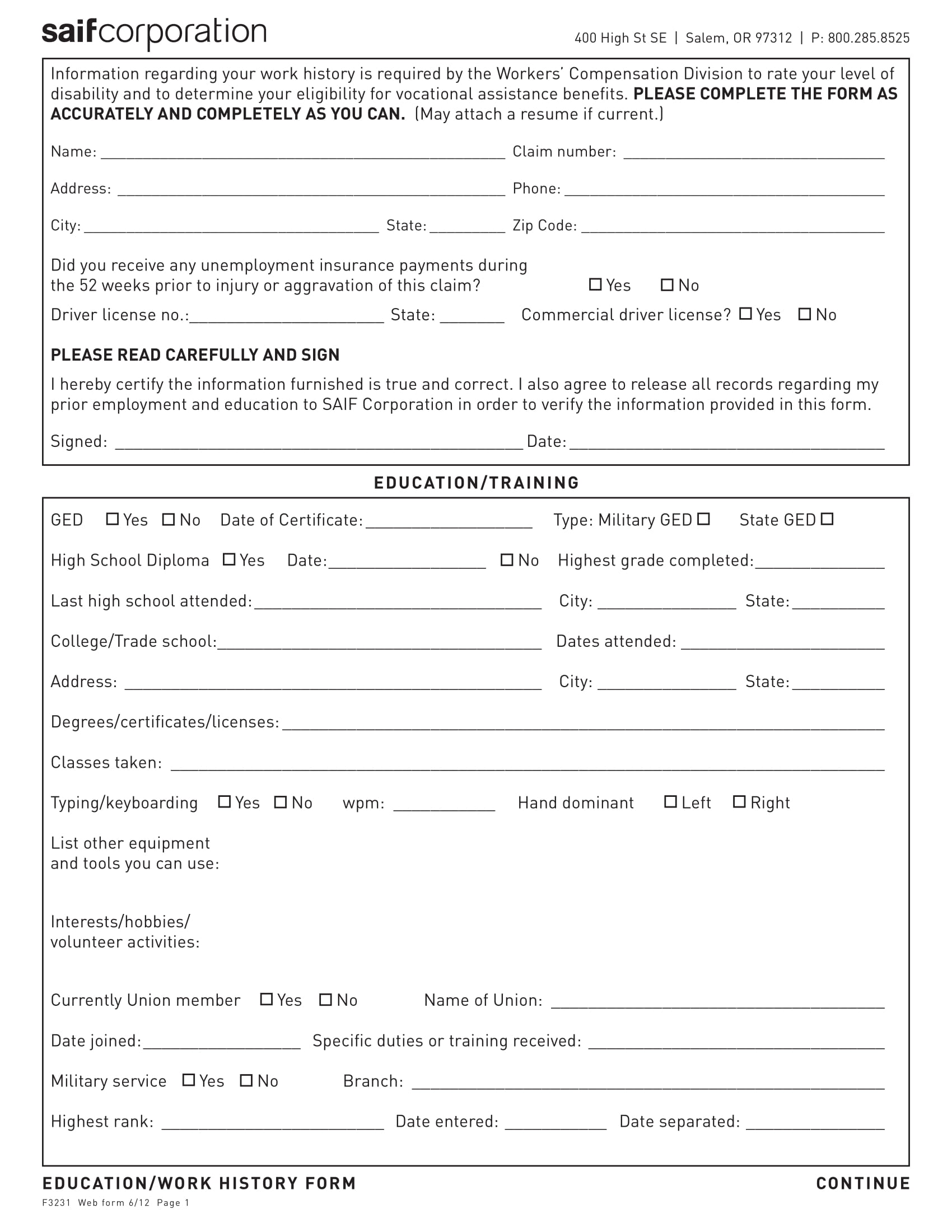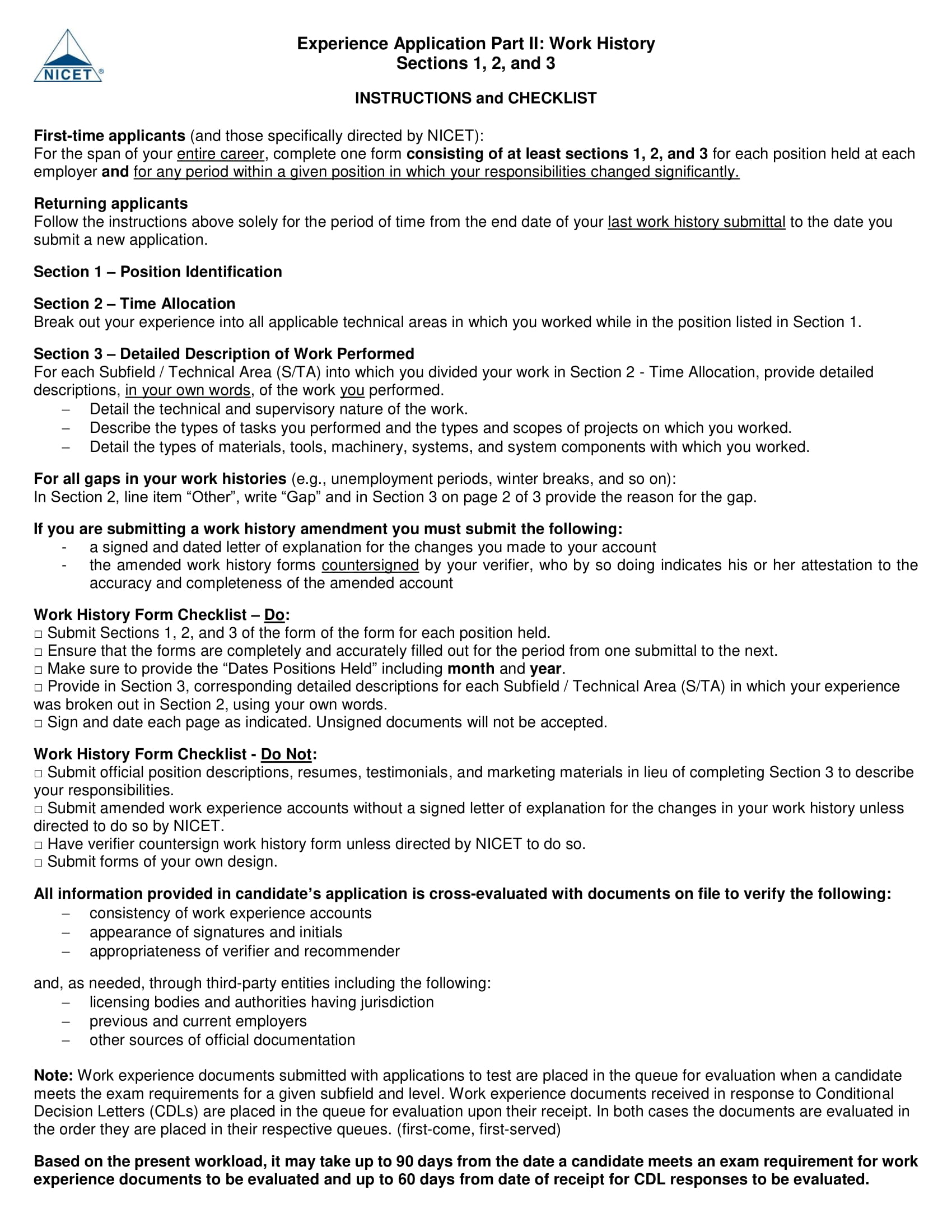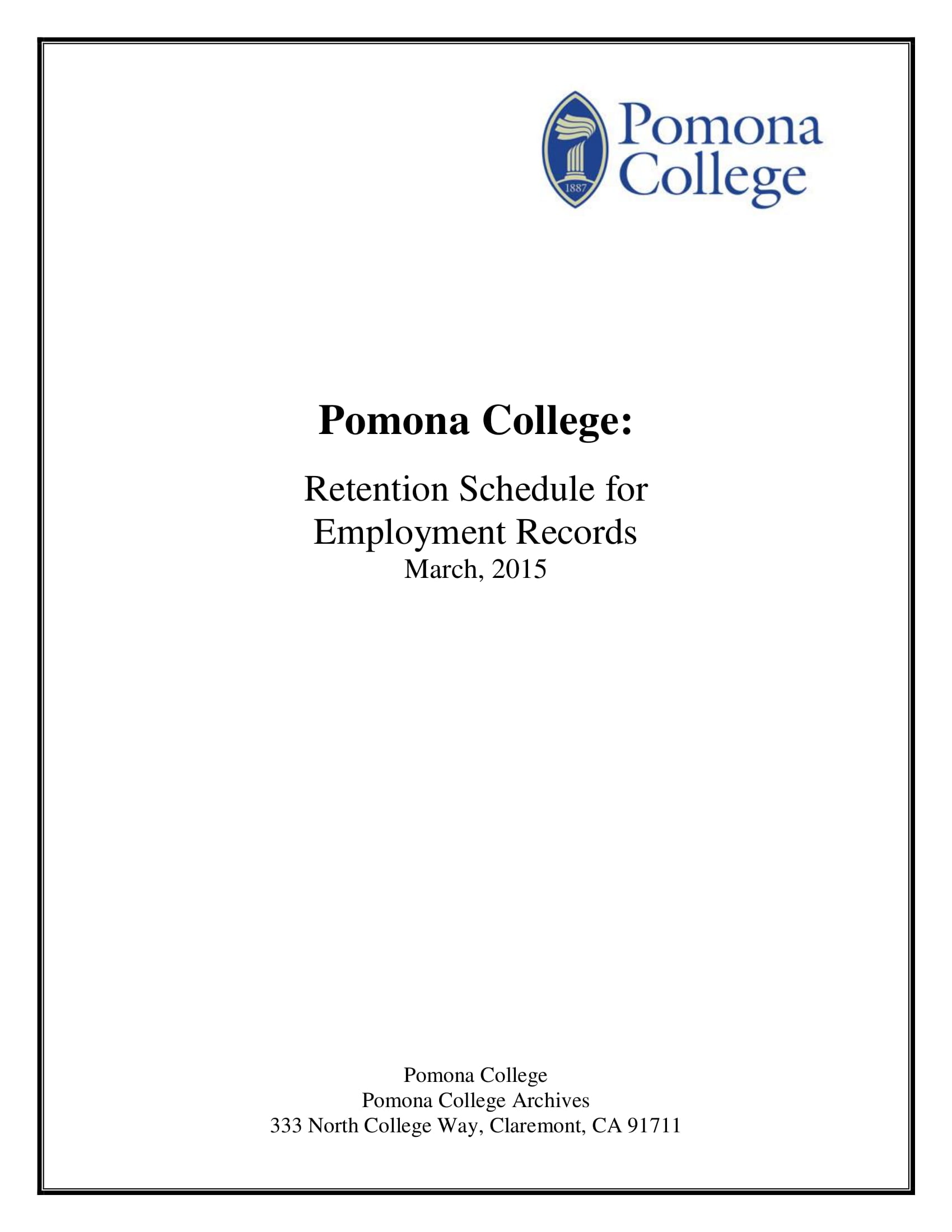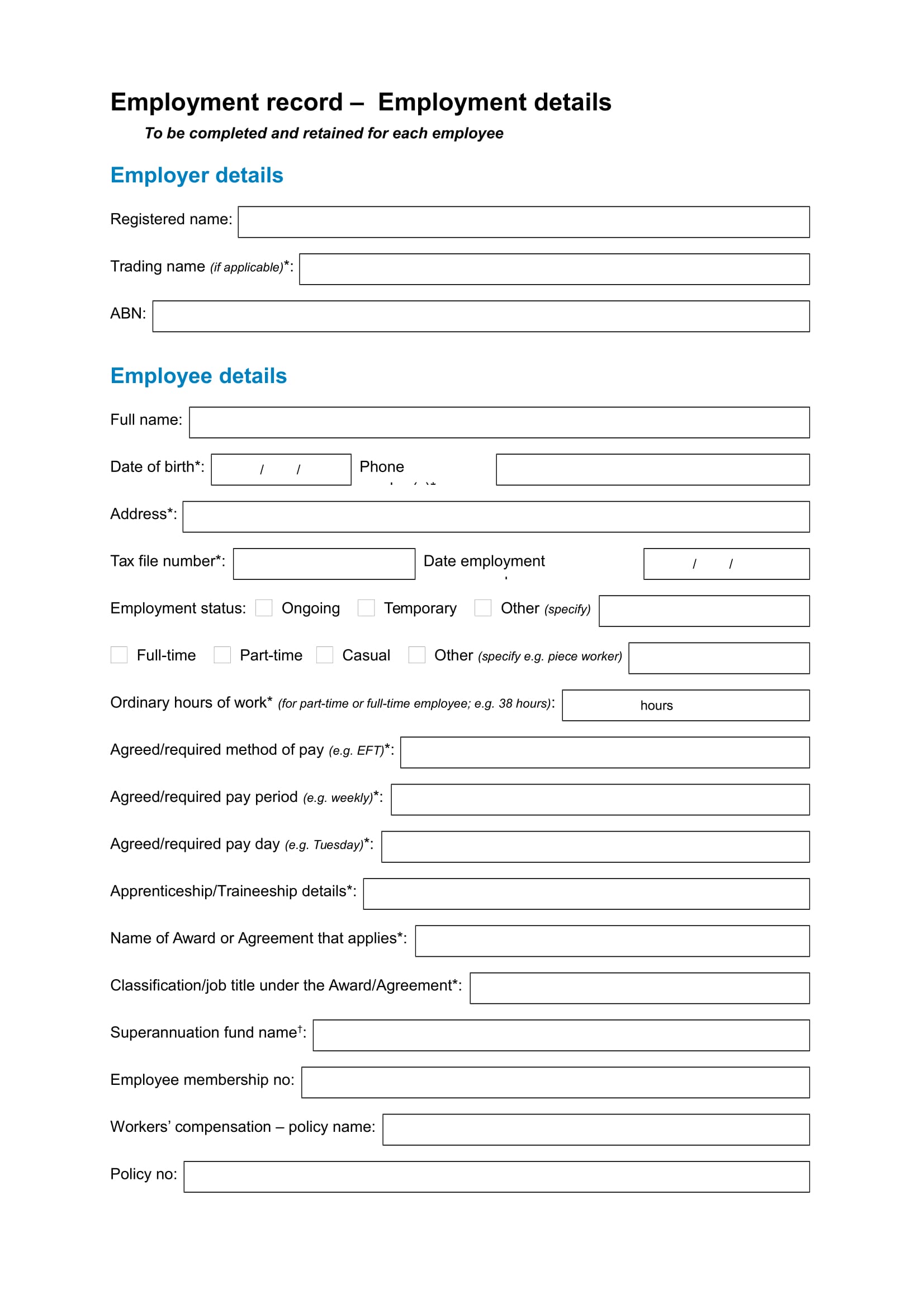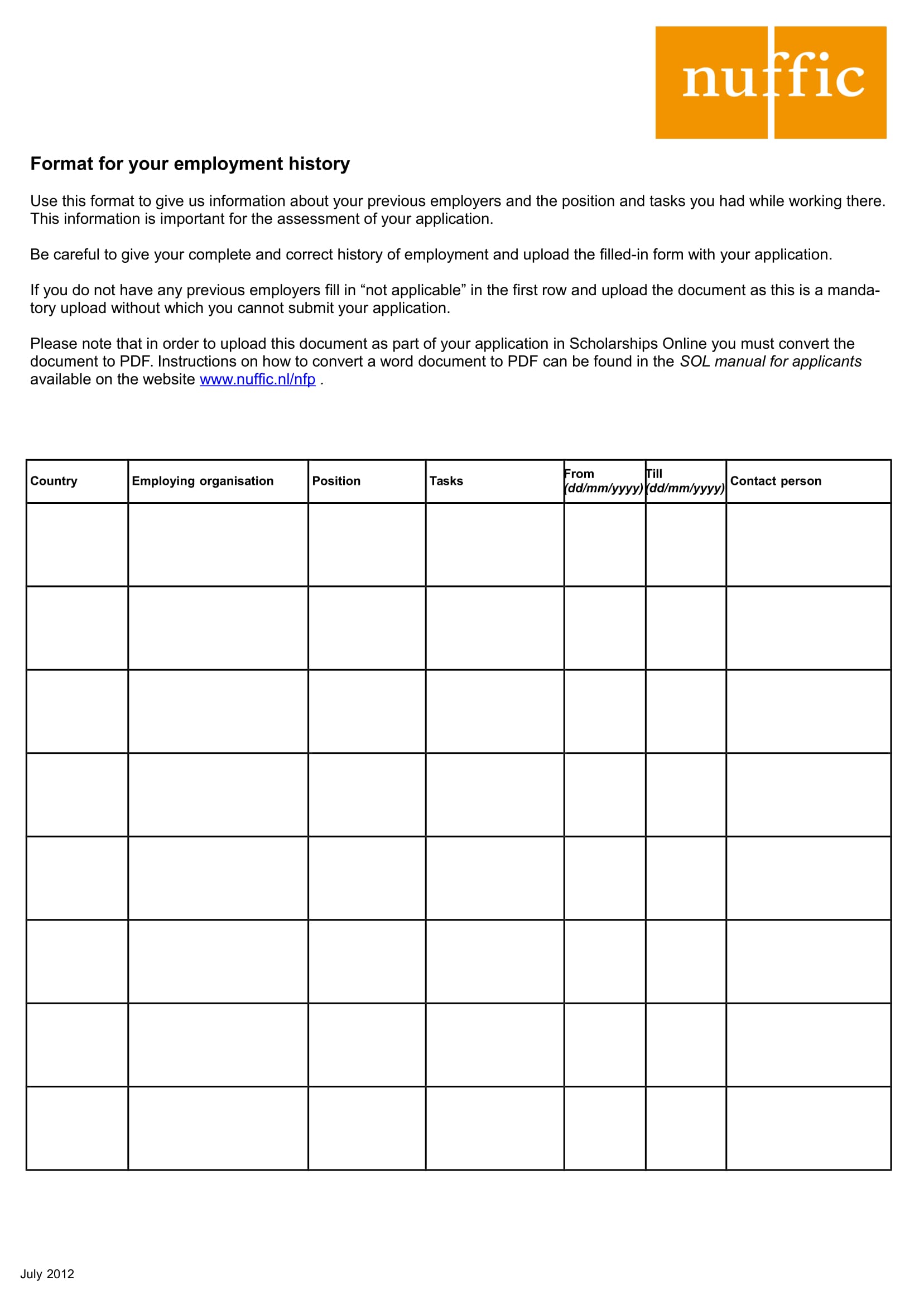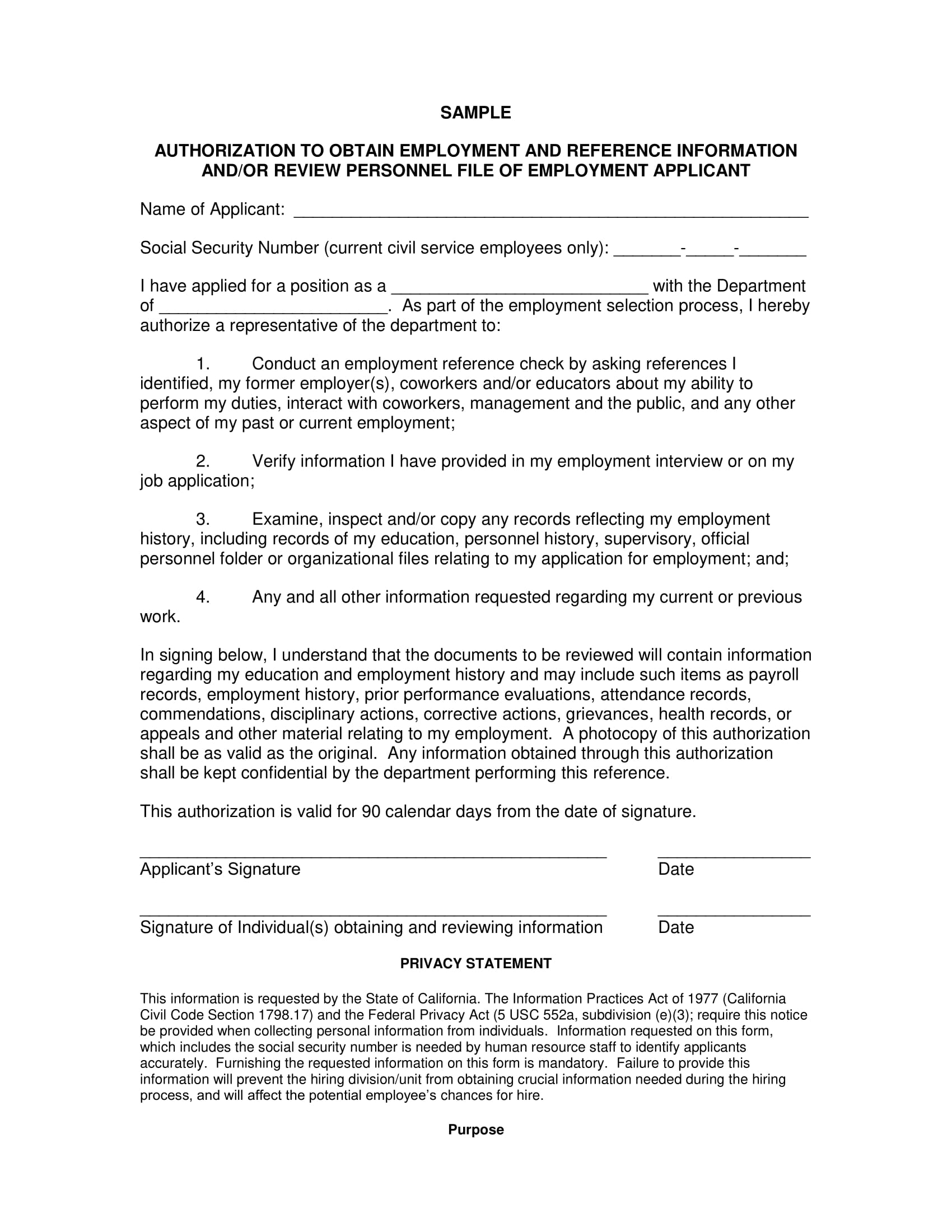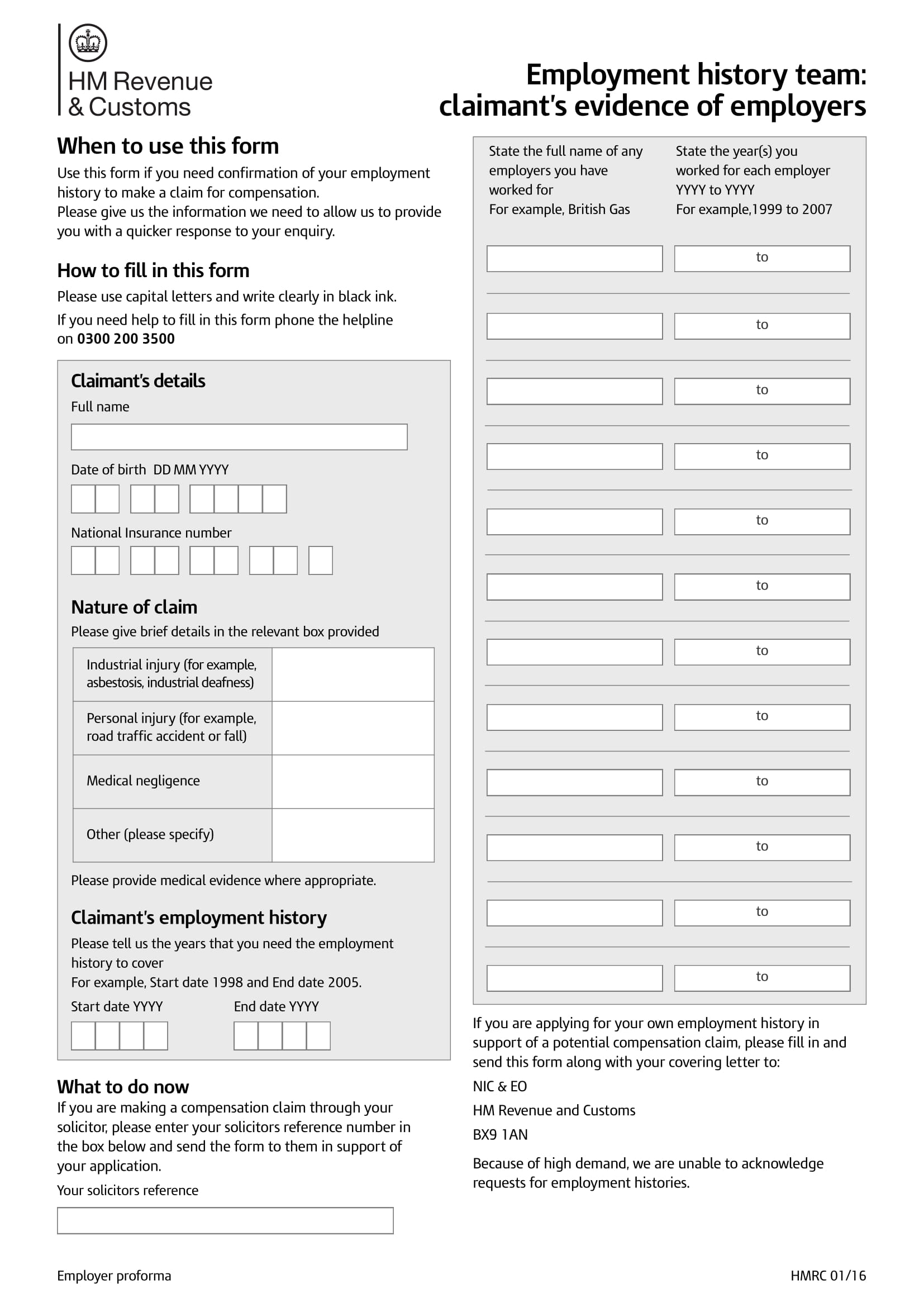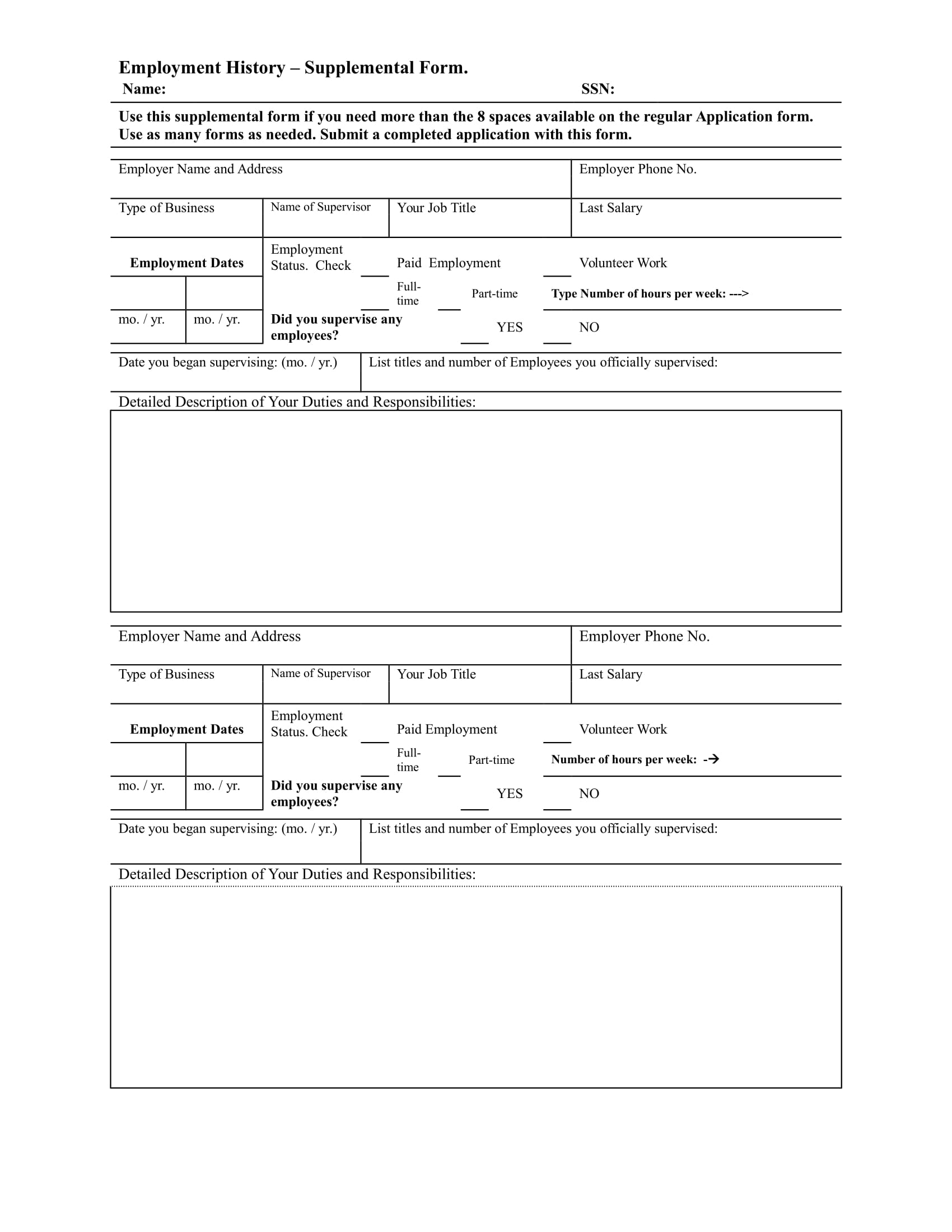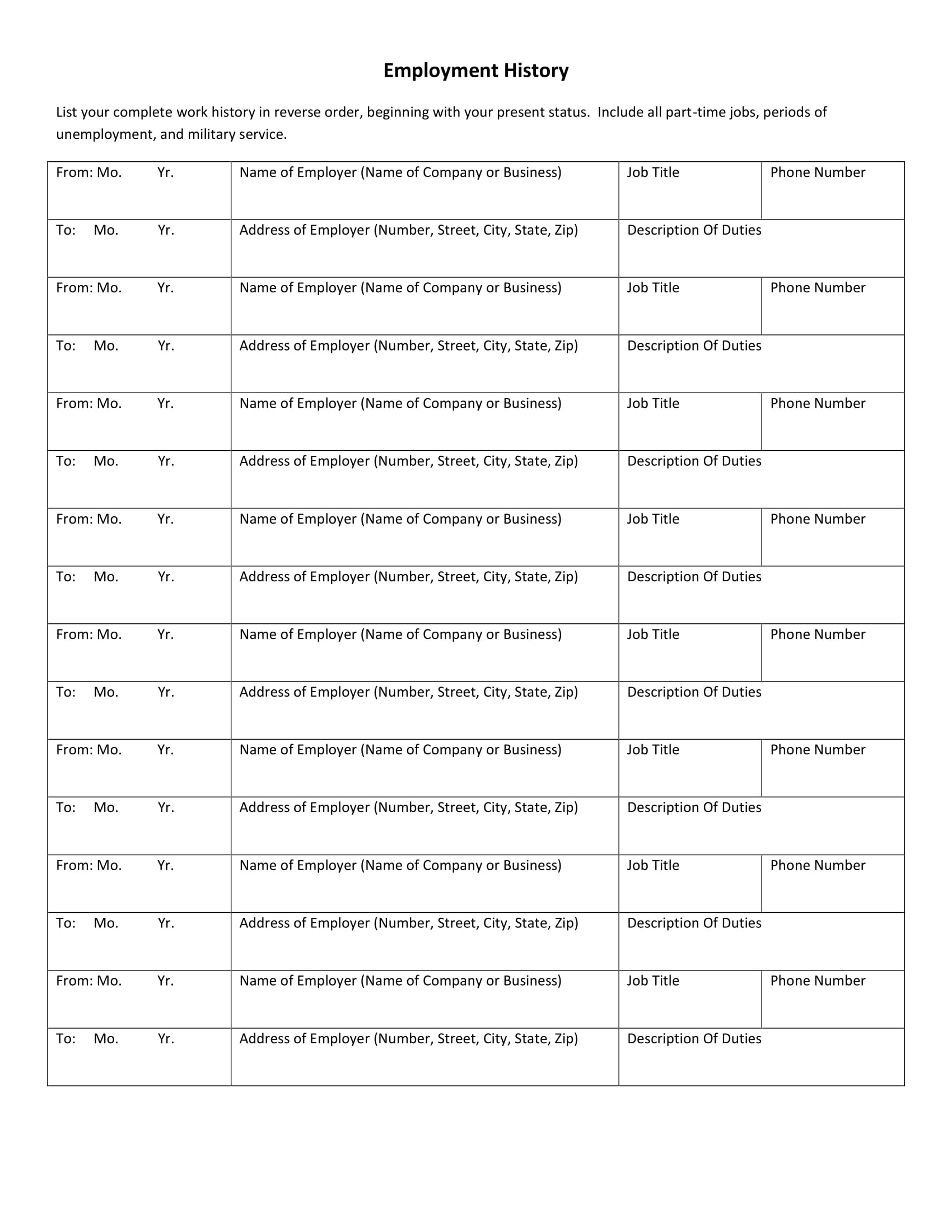9+ Employment History Form Examples to Download
When hiring new employees, your businesses should make sure that there will be a through screening of the qualifications of the candidates. Moreover, the recruitment processes must also have activities and procedures that can identify the character, work ethics and potential of every candidate. You can have a clearer view of the deliverable of an applicant with the help of an employment history form. This document is one of the types of HR forms you need for small businesses.
Work History Report Form Example
Education/Work History Form Example
What Can You See in an Employment History Form
With the discussion of non-discrimination policy examples arising in a lot of industries, using an employment history form can sometimes be questioned as some people think that it boxes the initial perception and impression of employers about the candidate. However, the usage of this document should not be directed in that manner.
Employment history forms are actually used to protect the business and its rights. With the help of this document, it will be easier for employers to know the individuals who already have prior professional experiences related to the job designation where their expertise are needed. This document can also be used to specifically compare applicants with one another in relation to the job positions that they have already handled and the work scopes that they are aware of conducting. For an employment history form’s usage to be maximized and optimized, there should be a complete list of the details that businesses need to know about their applicant’s previous work history. Some of the most common details that can be seen in a basic employment history form include the following:
- The name and basic business information of the current employer who would like to know information about the candidate’s employment history. This can also be in a form of the company’s letterhead. You may also see creative ways to structure your hr department.
- The name of the candidate whose employment history will be discussed in the form
- The work position that the candidate is applying for
- The work history of the candidate listed in a reversed-chronological order; which should include:
- The name of the previous employers of the candidate
- The starting date of the employment relationship
- The end date of the employment of the candidate in every company
- The number of months or years that the candidate provided his or her services to previous employers
- The work positions that the candidate have previously handled
- The simple statement that all the information listed in the work history form are true and accurate based on the best knowledge of the applicant
- The signature of the candidate or applicant and the date when the work history form has been signed
There are instances where companies need more information than what is already commonly found in a basic work history form. Some additional details that may be asked by businesses to their applicants are as follows:
- The job designation or description of the work post handled by the applicant in the past
- The location of the previous employers of the work applicant. You may also see hr memo examples & samples.
- The reason why the applicant decided to leave his or her previous employers
- The specification on whether the applicant resigned or was terminated
- The skills and other deliverable that are highly-used in the previous professional work positions of the candidate. You may also like best human resource policies and practices.
Work History Form Sample
Employment Record and History Form Example
Benefits of Having an Employment History Form
Employment history forms can benefit the business a lot, especially the human resource department. Through the usage of this document, it will be easier for the HR of companies to identify the most qualified candidate for the work position that the business have opened for employment. Aside from the results of face-to-face interviews, the specifications in the professional profile and cover letter of the applicant, and the results of medical examinations and employment exams; the content of an employment history form can also greatly impact a candidate’s application. Listed below are a few of the benefits and advantages that having a complete and well-detailed employment history form can provide to your business.
1. An employment history form can provide information on the additional value that the applicant can give the business with. Especially in cases where the position that the candidate is applying for is the same with his or her previous job/s, then there are higher chances that he or she already has the necessary knowledge about the work post and its demands. With this, the human resource department can already have the perception that the candidate can easily adapt to the new work environment. You may also see importance of human resource management.
2. An employment history form can strengthen the content of an applicant’s cover letter or job application letter. Especially if proven during background checks that all of the details in the employment history form are accurate, candidates will have higher chances of getting considered for the job as their statements can align their qualifications and previous work experiences with the requirements of the work position that they are targeting.
3. An employment history form can showcase the length or period of time that an applicant has been employed by previous companies. Even if the applicant has an impressive list of work experiences, you also have to consider the amount of time that the applicant has spent per employer. Especially in cases of employment gaps or short periods of employment, you need to assess whether the candidate has the potential to stay in your company for a long time if hired. You may also like reasons why hr is critical to your company’s success.
4. An employment history form can help the human resource department assess the relevance and relation of the previous work experiences of the candidate to the position that he or she is applying for. Are the skills and expertise required by the previous work posts of the candidate the same or directly related with the needs of the job position that you are offering? Having an employment history form can make it easier for you and your business to answer this question. You may also check out things every hr professional needs to do to succeed.
Employment Record Employee Details Form Example
Employment History Form Format Sample
By using an employment history form, you can already review the previous work experiences of an individual which can give you an idea of the work deliverable that he or she can provide as well as the level of professional successes and designations he or she’s already had. We have listed a number of employment history form examples that you can use as references if you want to prepare and create the same document for your business. You may also see hr checklist examples & samples.
Tips in Making an Effective Employment History Form
Not all employment history forms have the same effects and impacts to the recruitment processes of every company. There are different factors that can affect the effectiveness and efficiency of this form. Some of the elements that can change the way employment history forms work include the following:
- The format of the employment history form
- The clear understanding on how the employment history form should be used and filled out
- The completion of all the details that can help the company assess and evaluate the employment history of the candidate. You may also like human resource budget examples.
- The alignment of all the information that the company would like to inquire about its candidate’s employment history
Aside from looking into these elements, there are also a few things that can make it easier for you to create a highly-usable employment history form. Some of the tips and suggestions that you can incorporate in the development of your business’ own employment history form are as follows:
- Compare the content of the employment history form with the details in the reference letter of the candidate. This can be done if the reference of the applicant is from any of the company where he or she previously worked. This can help you counter check the details specified in the form.
- Make sure that you will come up with a format that can easily be understood by applicants. This way, there will be lesser chances that they will provide you with an incomplete form or an employment history form with misleading or vague information. You may also check out human resource strategy examples.
- Be as precise as possible. You have to be direct to the point when asking for particular employment information so you can also receive concise answers.
- Come up with a presentable and well-formatted employment history form. This form is a part of your business image and brand which is why you have to ensure that they will be developed just as how you create other forms and documents that are used by your company. You might be interested in examples of hr forms.
Sample Authorization Form to Obtain Employment Records
Claimant’s Evidence of Employers History Form Example
How to Efficiently Use an Employment History Form
When creating an employment history form, businesses think that it is only the content and format of the document that matters. However, there is more than these factors that can affect the full-optimization of the document’s potential. How you use an employment history form can also affect the advantages that you can get form it. Here are some guidelines on how you can efficiently use a well-formatted and organized employment history form:
1. Create a draft that will help you list down all the details that you want to know from the previous employment of your candidates. More so, come up with metrics and weights that you can use when evaluating the work experiences and employment relationships of the applicants. You may also see ways recent hr technology improves on performance reviews.
2. Only ask for relevant and necessary information. Do not use an employment history form for any purpose that the applicant is unaware of. It is important for you to retain the integrity and credibility of your business which is why you have to ensure that you will not ask questions that are pertaining to the internal processes and operations of the previous employers of the candidate. You may also like things the big bosses want from the leaders in hr.
3. Know the phase of the recruitment where you will let candidates answer or fill-out an employment history form. This will depend on the recruitment and hiring processes of your business. Will you use the document to compare the work experiences of the candidates who submitted their application letter and other requirements? Or will you just refer to the employment history form during the interview processes where the applicants have already been initially screened? The proper timing of the employment history form’s usage can save both your time and efforts during recruitment.
Employment History Supplemental Form Example
Employment History Form Example
Should I Create an Employment History Form for my Business?
An employment history form is one of those documents or human resource forms that can help build the retention program and strategies of your business. Receiving simple resignation letter examples from your employees can be lessened as you have already assessed their capabilities and ability to adapt with the job designation, work position and the workplace by reviewing their previous employment records. Aside from conditions that you could not handle like your employees’ health issues, personal concerns and medical conditions; creating an employment history form can truly allow the management and all the other decision makers during the recruitment to find the right and best fit for the work position that a lot of candidates are vying for.
If you are already convinced that having an employment history form during recruitment can positively impact your business and its hiring processes, then there is actually no harm in trying to make and use this document. Try making your own employment history form and see how it can change the way you review the qualifications and competencies of your applicants. Do not forget to refer to examples that you can download here as well as the guidelines and tips that we have prepared and specified just for you. You may also see sample hr templates and examples.



